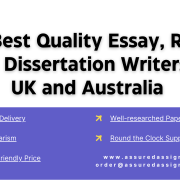Further information about general assessment criteria, ARNA regulations, referencing and plagiarism can be found on the module’s site on the e-Learning Portal. Students are advised to read and follow this information.
Instructions on Assessment:
In no more than words, you must demonstrate your critical understanding of the need for self-awareness and continuing self development. This will be achieved through the completion of the following tasks:
1. Using a range of relevant literature, explain how self-awareness and continuous self-development will help you to fulfil your role as a successful manager in the future. This is worth 30% of overall marks – approx 1,000 words.
2. Using the attached templates, write two separate critical incidents to reflect upon the findings and implications from two self-analysis toolkits from the module (e.g. Belbin, Emotional Intelligence, Management Competencies, Personality tests). This is worth 50% of overall marks – approx 1,400 words.
Please note you must:
Provide two clear and specific critical incidents. The first critical incident should be based on an incident from your Residential weekend.
Include a summary of the toolkit results you have chosen on each critical incident template e.g. if you have used your Belbin profile you should make a note of your key results/themes.
Identify how you will use this learning in the future.
3. Summarise your major strengths and weaknesses and comment on any patterns of behaviour that have emerged from your self analysis. Identify no more than three areas of personal development as a (future) manager that you can work on in the next year. This section should reflect the findings of at least four toolkits that you have used on this module. This is worth 10% of the overall marks – approx. 600 words.
4. The final 10% of marks will be awarded for the presentation and structure of your assignment and the accurate referencing of your sources using the APA format.
Important Note: You must retain a copy of all of your completed toolkits as your Tutor may ask to view your ‘working papers’.
The following resources have been provided to support the assessment process:
A dedicated seminar in Week Seven
Exemplars of critical incidents (see the eLearning portal)
Formative feedback on one draft critical incident (provided by your Tutor in Week Seven)
Links to the assessment throughout your residential weekend
Assignment hand-in checklist
Reflections on where students lost marks last year (see the eLearning portal)
Word limits and penalties for assignments
Assessment Brief – Postgraduate
If the assignment is within +10% of the stated word limit no penalty will apply. The word count is to be declared on the front page of your assignment and the assignment cover sheet. The word count does not include:
Title and Contents page Reference list Appendices Appropriate tables, figures and illustrations
Glossary Bibliography Quotes from interviews and focus groups.
Please note, in text citations [e.g. (Smith, 2011)] and direct secondary quotations [e.g. “dib-dab nonsense analysis” (Smith, 2011 p.123)] are INCLUDED in the word count. If this word count is falsified, students are reminded that under ARNA page 30 Section 3.4 this will be
regarded as academic misconduct. If the word limit of the full assignment exceeds the +10% limit, 10% of the mark provisionally awarded
to the assignment will be deducted. For example: if the assignment is worth 70 marks but is above the word limit by more than 10%, a penalty of 7 marks will be imposed, giving a final mark of 63. Students are advised that they may be asked to submit an electronic version of their assignment.
Time limits and penalties for presentations The time allocated for the presentation must be adhered to. At the end of this time, the presentation will be stopped and will be marked based on what has been delivered within the time limit.











